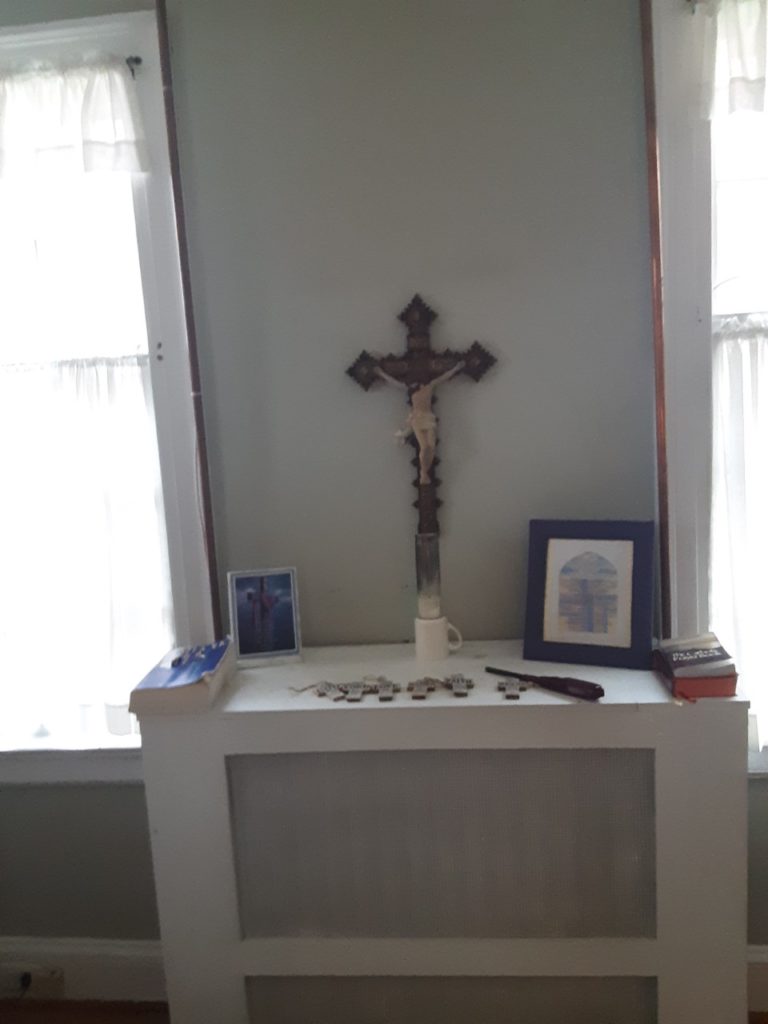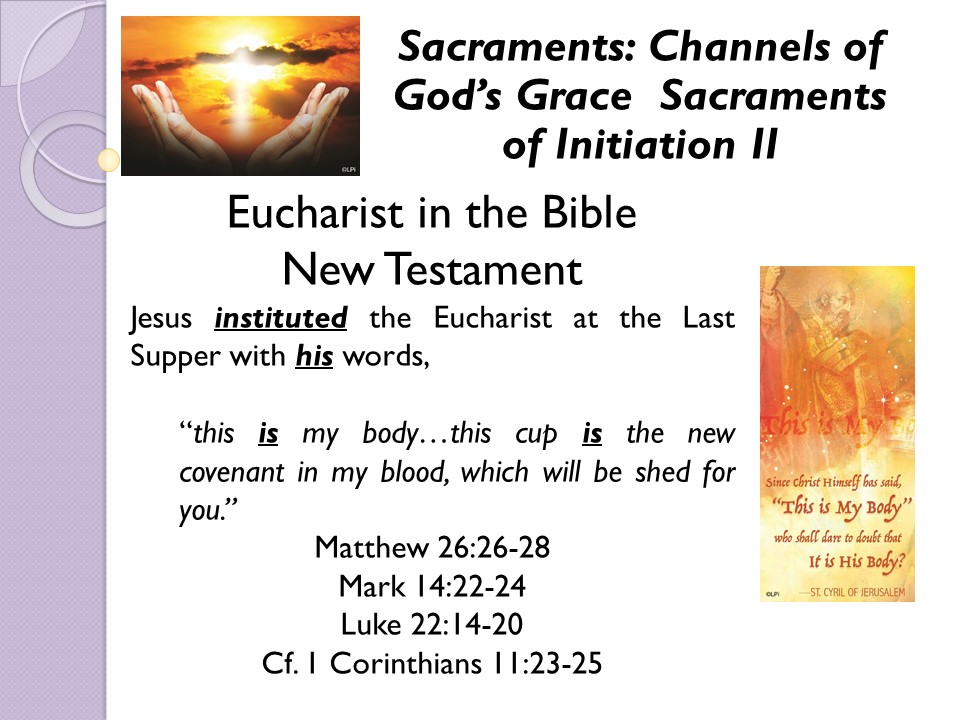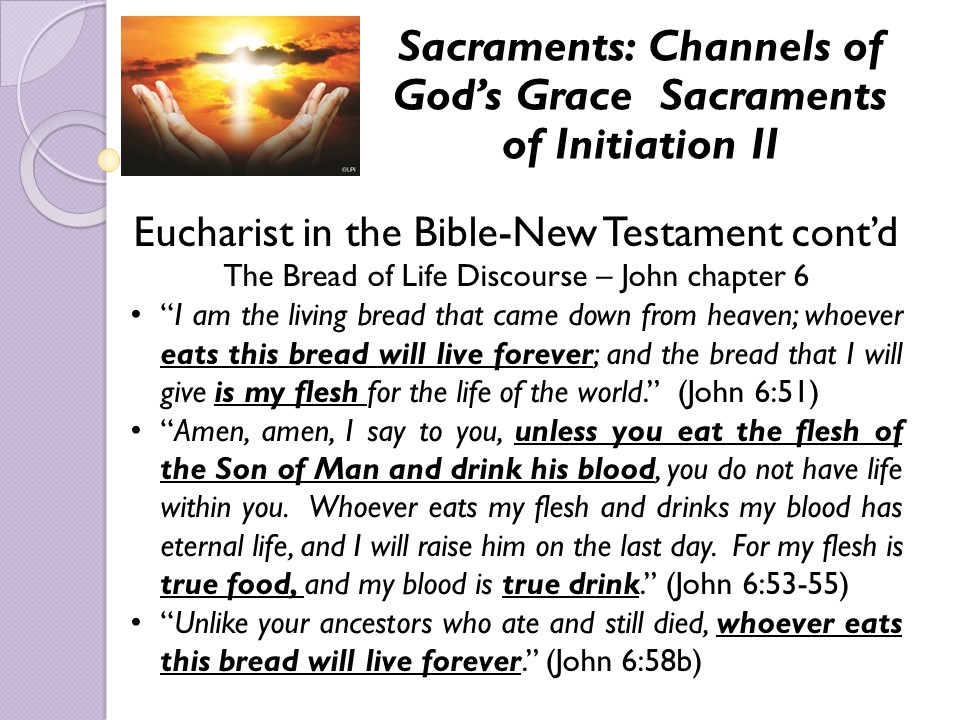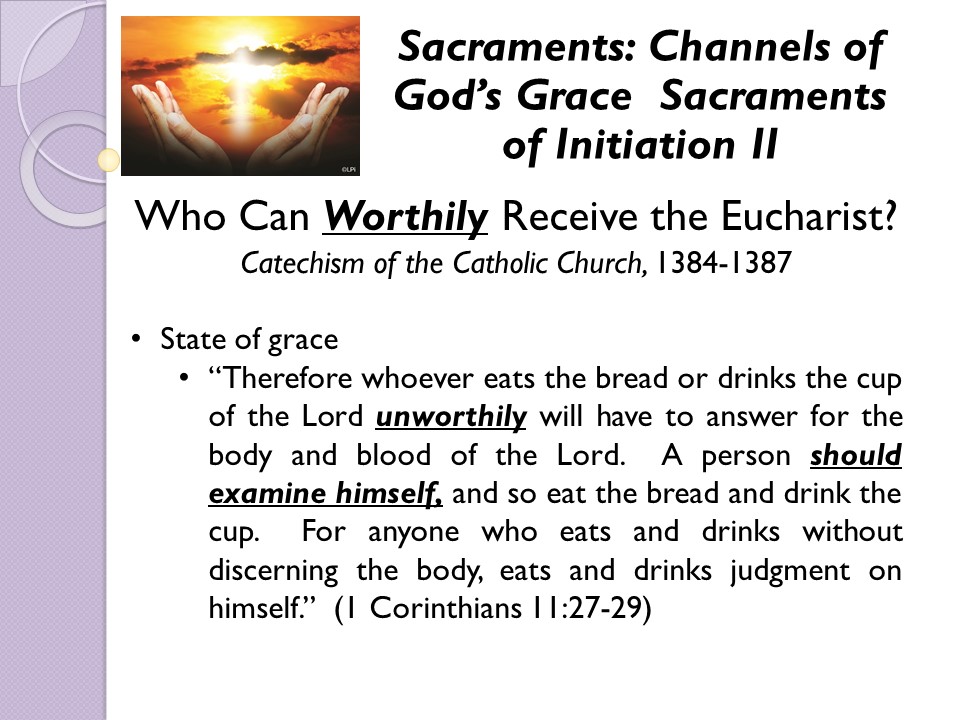16th Sunday in Ordinary Time, Year B
Jeremiah 23:1-6
Psalm 23:1-3, 3-4, 5, 6 (1)
Ephesians 2:13-18
Mark 6:30-34
July 18, 2021
Jeremiah served as a prophet of the Lord in the time leading up to and including the start of the Babylonian Exile. God allowed the Israelites to be defeated by their enemies. Why? Because they had sinned. Some of this was because of their own choices. Some of it was because there were bad shepherds.
Thus, the Lord says, “Woe to the shepherds who mislead and scatter the flock of my pasture.” The shepherds were those appointed to be either secular leaders or religious leaders.
How did they mislead the people? The religious leaders have done this by distorting the Law. This doesn’t necessarily mean they were deliberately misleading the people. Perhaps they were misled themselves.
The religious people might cause others to “scatter” by burdening the people with more strict laws that what God offered.
Both the religious and secular leaders sometimes led others astray by their poor example. Did they practice what they preached? Or they drive people away with burdens and hypocrisy?
Fortunately, God always has a plan. God had a plan to bring those who were far from him back to him (something we need to do today).
God says to his people, “I will appoint shepherds for them who will shepherd them.” When we think of God appointing shepherds, we probably think of church leaders, especially our bishops who carry a crozier, a shepherd’s staff. We need to pray that all those called to be shepherds in our Catholic Church are those called by God. For instance, I am not a priest because I want to be a priest. I accept priesthood as a calling from God.
Likewise, we need to pray that those elected to secular government are those who God chooses.
We also need to pray for both church and secular leaders already serving to always seek to follow God’s will.
If we let him, God will work through us but ultimately it is God who saves us. It is God himself who “will gather the remnant.”
Yes, it is the Lord we need. For as the 23rd Psalm says, “The Lord is my shepherd, there is nothing I shall want.”
We can count on the Lord to guide us. If we fully and truly follow the Lord, we will not want. However, that does not mean we get everything we want. If we truly follow the Lord, we can find ourselves wanting less. In giving our lives totally to God we often come to find some things that we wanted just aren’t that important.
When we face great difficulties in life, we might fear what lies before us. With the Lord at our side, we hand our fears over to him as He gives us comfort and hope leading us to have the courage we need to endure.
How might the Lord be calling you to help shepherd his people?
For me, I serve our parishes as the religious leader. I am the ordained priest but God has also called our deacons as well as our staff to help lead our parishes. We also have parishioners who serve on councils who assist in the leadership.
Maybe you are not called to a leader (shepherd) in our parishes but God may still be calling you to serve in our parish. God calls some to be lectors, others ushers or greeters, and musicians. One of these days we will resume using altar servers and Extraordinary Ministers of Holy Communion. Maybe you are called to help with faith formation, our Community Table, or special projects. Maybe God is calling to a ministry of prayer. God calls some to be shepherds. God calls all of us to contribute in some way of our time, talent, and treasure.
Much of the same is true regarding service in our community outside the church. Some are called to hold government office as leaders/shepherds. Others can volunteer with organizations like Catholic Charities or the food pantry.
Even in the home we have shepherds. Parents are called to be shepherds of their children, leading them in following the Lord’s Way.
Last week we heard of the first time Jesus sent the Twelve out on a mission. Before they were sent out they spent time learning from Jesus as their shepherd.
Only then did they go out. Did they go out and never return?
Isn’t that what some people do? They come to church and religion classes till they are confirmed. Then they go out and don’t return.
The Twelve did return. They came back to Jesus and “reported all they had done and taught.” They had cured many people and drove out demons. They also taught.
They came back to Jesus to continue their learning from him. They kept coming back to encounter Jesus. We need to keep returning to Jesus. The learning we do about our faith leading up to Confirmation is just the beginning.
We come back to be fed with the Body and Blood of Jesus in the Eucharist.
We come back to be fed with the Word of God found in the Bible.
We back to be taught more about Jesus as the way and the truth and the life.
We should never lose sight of the desire to come closer to Jesus. We are created to know and love God.
Jesus was moved with pity for his people. This will lead him to feed his people with bread in the multiplication of the loaves. That comes after today’s gospel passage.
Today, He was moved with pity for the people “for they were like sheep without a shepherd.” They needed guidance. God wants to guide us. Thus, moved with pity Jesus began to teach them, feeding them with his Word.
Let us pray that we allow God to be our shepherd, that He guides us and feeds us with his Word and the Eucharist.





